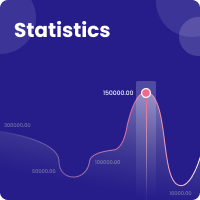¿Es Posible Aprender Inductivamente de la Experiencia?
Keywords:
Philosophers, Inductive Learning, method, Bayesian Statistics, Probability Calculus, Deductive Learning.
Abstract
With the birth of probability calculus as a new risk quantification methodology, it also appears the debate with respect to the viability of inductive probability or to the fact that classic statistics uses inductive or deductive methods to draw its conclusions which is the basis of the scientific method. Such discussion becomes more intense with the strengthening of Bayesian statistics that seems to be the most promissory answer in favor of inductive learning and which is supported here by the authors of this article. There are many philosophers that reject the possibility to learn inductively from the experience. The most famous objections in this sense come from David Hume and, then, from Karl Popper who, among others, resist any possibility of an inductive logic.
How to Cite
[1]
D. A. Arboleda-Quintero and M. E. Patiño, “¿Es Posible Aprender Inductivamente de la Experiencia?”, TecnoL., no. 20, pp. 45–74, Jun. 2008.
Downloads
Download data is not yet available.










